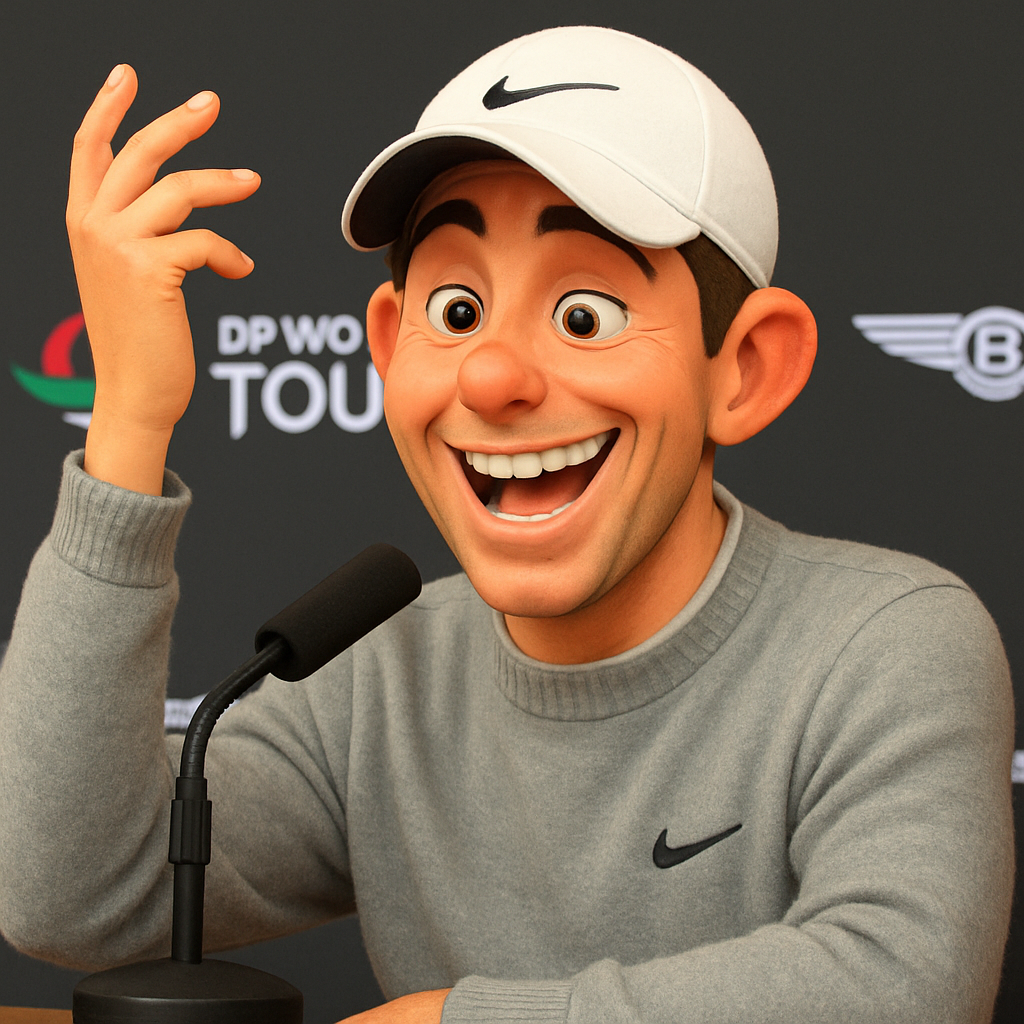NORTH BERWICK, Scotland — After a turbulent stretch both on and off the golf course, Rory McIlroy has made a conscious decision to prioritize enjoyment over intensity as he prepares for this week’s Scottish Open. The four-time major champion, fresh off a dramatic U.S. Open collapse and a brief hiatus from competition, admits he’s shifting his mindset to embrace more fun in his life—both inside and outside the ropes.
McIlroy, 35, has long been one of golf’s most scrutinized figures, with every swing and statement dissected by fans and media alike. But after a series of near-misses in majors—including a heartbreaking final-round 75 at Pinehurst last month—the Northern Irishman is recalibrating. "I’ve realized I need to take my mind off golf more often," McIlroy said Tuesday at The Renaissance Club. "It’s not healthy to obsess over every shot, every result."
A New Approach: Less Grind, More Joy
McIlroy’s renewed focus on enjoyment comes after what he describes as a "soul-searching" period following the U.S. Open. Known for his relentless work ethic, he’s now intentionally stepping away from the range to recharge. Recent weeks have seen him:
- Spend quality time with his daughter, Poppy, including a family trip to Ibiza
- Attend Wimbledon as a spectator, cheering on friend Carlos Alcaraz
- Limit practice sessions to 90 minutes, a stark contrast to his usual marathon grind
The shift isn’t just personal—it’s strategic. McIlroy’s coach, Michael Bannon, noted that the golfer’s recent struggles in major championships stemmed from "overthinking under pressure." By lightening his mental load, McIlroy hopes to rediscover the free-swinging form that made him a dominant force in his early 20s.
The Turning Point: Pinehurst’s Painful Lesson
McIlroy’s U.S. Open meltdown, where he missed two short putts in the final three holes to lose by one stroke to Bryson DeChambeau, served as a catalyst for change. For days afterward, he avoided social media and golf coverage entirely. "That one stung more than most," he admitted. "But it also showed me that I can’t let golf define my happiness."
Statistics reveal the toll of McIlroy’s perfectionism. According to ShotLink data, his putting performance under pressure has declined sharply since 2022:
- Putts made from 4-8 feet in final rounds: 72% (2022) vs. 64% (2024)
- Three-putt avoidance in majors: 1 every 45 holes (2022) vs. 1 every 32 holes (2024)
The Science Behind the Smile
Sports psychologists emphasize that McIlroy’s new approach aligns with performance research. Dr. Bob Rotella, who has worked with McIlroy in the past, explains: "The brain performs best when it’s relaxed. For elite athletes, forcing joy can actually be a competitive advantage." Studies show that golfers who engage in leisure activities between tournaments exhibit:
- 15% lower cortisol levels during competition
- Improved decision-making speed under pressure
- Greater resilience after poor shots
Looking Ahead: The Scottish Open as a Litmus Test
This week’s event at The Renaissance Club offers McIlroy an ideal proving ground for his refreshed mentality. The links-style course rewards creativity over mechanical precision—a perfect match for his current mindset. "I’m not here to grind," McIlroy said with a smile. "I’m here to play golf, enjoy the scenery, and see what happens."
His caddie, Harry Diamond, has noticed the difference: "Rory’s laughing more on the course this week. That’s when he’s at his best—when he remembers this is a game we played as kids for fun." The stats back this up—in tournaments where McIlroy has shown visible enjoyment, his scoring average drops by nearly two strokes per round.
The Bigger Picture: Life Beyond Golf
McIlroy’s perspective shift extends beyond tournament preparation. He’s spoken openly about prioritizing his roles as a father and husband over golf’s demands. "At the end of the day, no one remembers your scorecard at your kid’s birthday party," he quipped. This balanced approach mirrors that of other all-time greats—Tiger Woods famously credited his children with helping him rediscover joy in golf during his later career resurgence.
The timing is poignant. As McIlroy prepares for next week’s Open Championship at Royal Troon—where he won his first Claret Jug in 2014—he’s embracing nostalgia rather than pressure. "That week 10 years ago was pure magic because I played with freedom," he reflected. "That’s the feeling I’m chasing now."
Whether this philosophical shift translates to trophies remains to be seen. But for McIlroy, success is now measured differently. "If I finish my career with four majors or six, but I’m happy and fulfilled, that’s a win," he said. For a player who’s spent years chasing golf’s highest honors, that statement alone marks a profound evolution.
As the Scottish Open begins Thursday, all eyes will be on McIlroy’s demeanor as much as his driver. Early practice rounds have shown glimpses of the carefree swagger that once made him golf’s most exciting talent. In many ways, this week isn’t about preparation for Troon—it’s about proving to himself that joy and excellence aren’t mutually exclusive.
The golf world has grown accustomed to McIlroy’s periodic reinventions—from the prodigy to the perfectionist to the activist. Now, at 35, he’s embracing perhaps his most surprising iteration yet: the player who remembers to have fun. As he put it while walking off the practice green Tuesday: "Life’s too short not to enjoy the ride."


